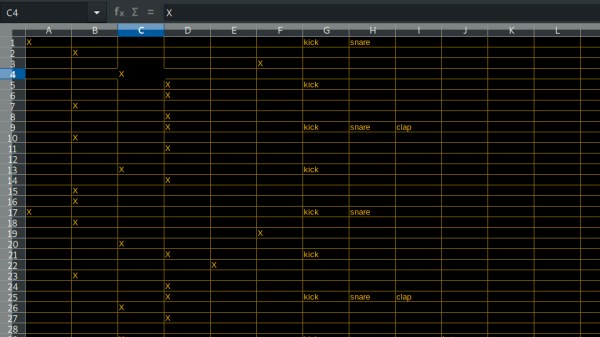Nothing says Rockstar Musician Lifestyle like spreadsheet software. Okay, we might have mixed up the word order a bit in that sentence, but there’s always Python to add some truth to it. After all, if we look at the basic concept of MIDI sequencers, we essentially have a row of time-interval steps, and depending on the user interface, either virtual or actual columns of pitches or individual instruments. From a purely technical point of view, spreadsheets and the like would do just fine here.
Amused by that idea, [Maxime] wrote a Python sequencer that processes CSV files that works with both hardware and software MIDI synthesizers. Being Python, most of the details are implemented in external modules, which makes the code rather compact and easy to follow, considering it supports both drums and melody tracks in the most common scales. If you want to give it a try, all you need is the python-rtmidi and mido module, and you should be good to go.
However, if spreadsheets aren’t your thing, [Maxime] has also a browser-based sequencer project with integrated synthesizer ongoing, with a previous version of it also available on GitHub. And in case software simply doesn’t work out for you here, and you prefer a more hands-on experience, don’t worry, MIDI sequencers seem like an unfailing resource for inspiration — whether they’re built into an ancient cash register, are made entirely out of wood, or are built from just everything.
Continue reading “Never Mind The Sheet Music, Here’s Spreadsheet Music”












